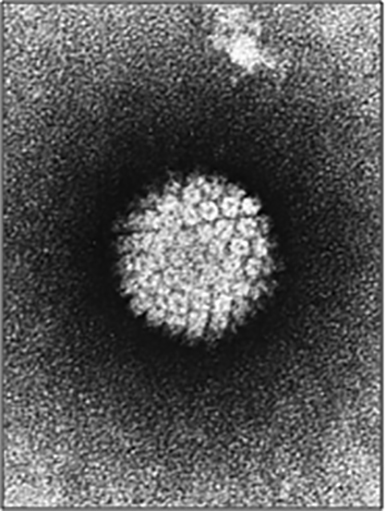
It is now clearly established that nearly all cervical cancers and CIN are associated with infection with HPV or the wart virus. There are over 100 types of HPV but only a few types are linked with cervical cancer and CIN (eg. Types 16 and 18). Some are linked with genital warts and warts in other parts of the body.
The HPV is a common virus in the population and is sexually transmitted. Most HPV infections are actually cleared naturally by the body’s immune system but in some instances, the virus persists in the cells on the cervix and causes the changes the give rise to CIN and ultimately cancer. This can take a few years to show itself which is why the smear test is done at regular intervals. Women who smoke are more likely to get persistent HPV infection.
The NHS now offers testing for HPV when the smear test is abnormal. The presence of HPV on a smear test is also done after treatment of CIN to see if the disease is completely cleared.
How does one get HPV infection?
Genital HPV is spread mainly during sexual contact. The virus can affect both men and women. Most people will not be aware that they have got a HPV infection as it normally does not cause any symptoms. It can lay dormant for years before its effects are seen. The most common changes from HPV infection will be seen on a PAP smear when changes to the cells will be picked up.
It is important to remember that although this is a common virus, most people who get HPV infection will actually clear the infection themselves and will never have any problems as a result of this.
HPV Diagnosis
The most common reason for HPV to be picked up is on a smear test which shows evidence of HPV infection.
Some types of HPV can cause genital warts which are noticeable as they cause tiny cauliflower-like lumps on the skin.
The HPV vaccine
HPV vaccines have now been developed and have been shown to be effective in preventing HPV infection and hence, reduce the incidence of HPV related conditions like warts, CIN and ultimately cervical cancer. It has been introduced for girls of school going age but can also be given to adults. The effectiveness of the HPV vaccine in significantly reducing genital and anal warts, cancers of the cervix, vulva and vagina is now well established. It is recommended for males and females from the ages of 9 to 26.
If you fall outside this age group but are interested in the vaccine, you should discuss this with your GP or gynaecologist.
Mr Razvi will be able to see you to discuss the suitability of the HPV vaccine if you fall outside the vaccine programme.
